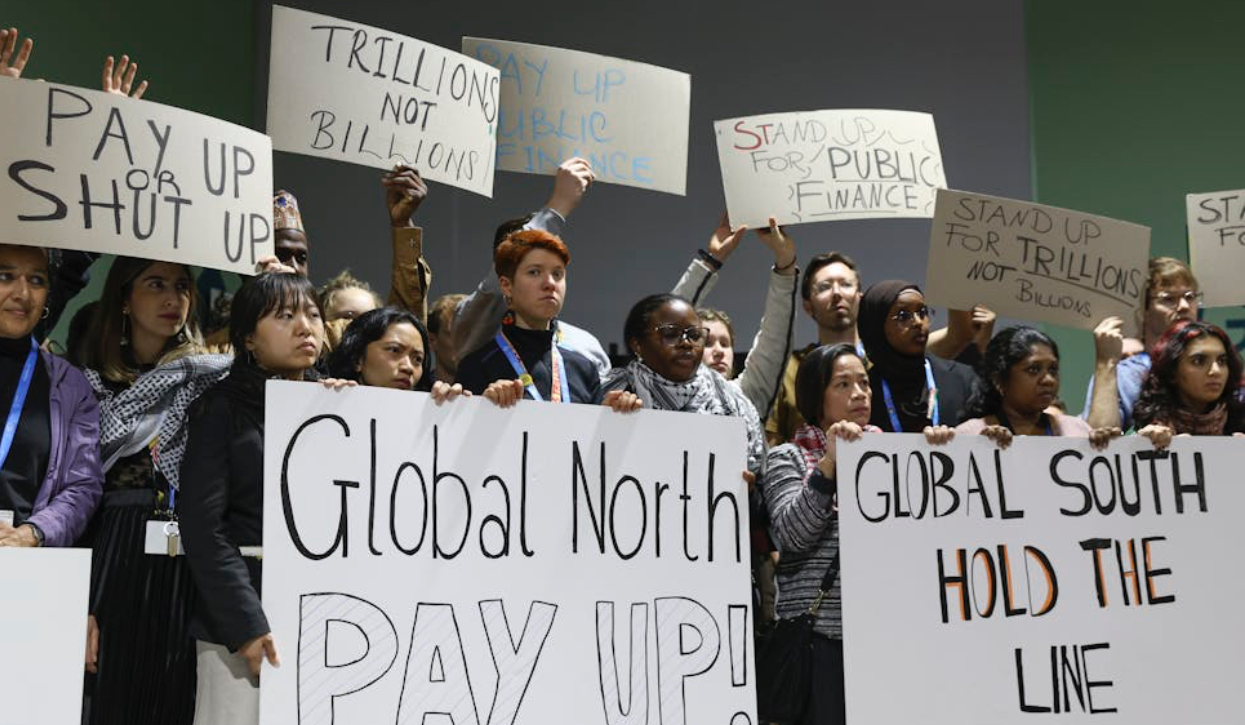Coronavirus recovery – the new economic thinking we need

Hanna Szymborska
The International Monetary Fund (IMF) is calling the coronavirus-induced economic crisis “the Great Lockdown”. The phrase mimics the Great Depression of the 1920s and the Great Recession that followed the 2007-08 global financial crisis. But, while it is tempting to maintain linguistic consistency in naming the present crisis the Great Lockdown, this term is misleading.
The Great Lockdown suggests that the root cause of the current economic depression lies in the negative impact of the pandemic. But the extent of the economic malaise cannot be attributed solely to the coronavirus.
The record rates of unemployment and the dramatic decline in economic growth are direct outcomes of policy choices promoted by the dominant economic paradigm the world has had since the 1980s – one that says free markets are the best way to organise our economic lives. It promoted interests of the financial sector, discouraged investment, and weakened the public sector’s capacity to deal with the pandemic.
The coronavirus recovery ahead requires a new way of economic thinking – one that puts the wellbeing of society over individual success and fundamentally challenges what is valued and financially rewarded by the economy.
Today’s economic policies have their roots in the thinking of the 1980s, which blossomed in the 1990s. It is based on the idea that, in the short run, the economy is characterised by market imperfections. These imperfections may lead to crises if external shocks – like a global pandemic – hit because income, spending, and production levels in the economy unexpectedly change and many workers become suddenly laid off.
But this paradigm believes that such imperfections are easily solved by temporary government interventions. It assumes that people make mostly “rational” decisions based on a mathematical model of the economy – so a limited amount of government spending and interest rate tinkering can bring the market back to normal. In the long term, this is meant to result in a healthy equilibrium where all people who want to work are once again able to find a job.
These ideas are the building blocks of mainstream economics and have had a decisive influence over economic policy in capitalist countries since the 1980s. Keeping inflation in check has become the top priority of economic policy in recent decades. It comes before other, arguably more important goals of policy, relating to social justice and sustainability.
Mainstream economics believes that in the long run excessive government spending, be it on healthcare, education, or on long-term projects like renewable energy, does more harm than good. This is because it has no influence over long-term levels of unemployment and GDP, but instead leads to inflation.
Crisis not averted
This dominant paradigm dictates that governments only intervene in “abnormal times” – such as following the global financial crisis and now, during the coronavirus pandemic. In response to the pandemic, policymakers have injected billions into the economy through higher government spending, record-low interest rate levels, and large-scale asset purchases through quantitative easing programmes.
But based on the experience of the past decade, it’s hard to say that economic crises are truly abnormal. Heterodox economics, an approach to economics that I belong to, says economic crises are an inherent feature of capitalism.
The dominant paradigm survived the Great Recession. Some government spending was allowed to stimulate the economy after the crisis. But then, in 2010, this was replaced by a decade of austerity, which had a devastating impact on society. In the UK, for example, years of underfunding have left the NHS barely able to cope with managing the pandemic.
Just like the Great Recession in 2007, the coronavirus pandemic has exposed the contradictions of our so-called advanced economies that lead to crises. Private sector indebtedness, persistent income and wealth inequalities, dependence of the labour market on insecure forms of employment, the prevalence of oligopolies where a limited few control markets – coronavirus is not the root cause of our economic problems, merely its catalyst.
But it’s still unclear whether the pandemic will provoke a new way of economic thinking. Coronavirus seemingly fits the mainstream narrative of crises being caused by an “external shock”, which is unrelated to the structure and functioning of the economy itself.
But the underlying causes which make this crisis so severe – like inequality, insecure employment, market concentration – are direct outcomes of the mainstream approach to economic thinking and policy. The sluggish recovery after the Great Recession in 2007, evident in persistent productivity problems, low growth rates, unresolved racial inequalities and increasing wealth disparities in many high-income countries, is a testament to the ineffectiveness of the dominant economic paradigm.
Unique opportunity
We face a unique opportunity to fundamentally rethink the priorities of economic policy and the thinking that underpins them. Responses to the pandemic show that governments have the means to invest in healthcare, education, and research. And to support workers and small business. These policies help many people achieve financial security, which increases private spending levels and supports economic activity.
These points have long been emphasised by heterodox economists. More government spending on public investment projects and public services, as well as greater oversight of how market activity influences society, must be the focus going forward.
To build back better economies after the pandemic, we must put social and environmental wellbeing before private profit. It is therefore crucial that, as the economy recovers, the debates on how higher government spending should be financed go beyond the “there is no alternative” view of economic policy. They must seriously consider different approaches to public debt, taxation, green monetary policy, and managing inflation. ( From : The Conversation )


















Facebook Comments